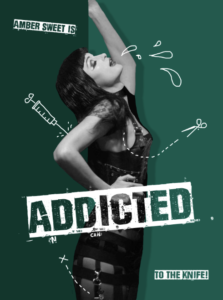If you are an avid social media user, enmeshed in the culture, news and never-ending knowledge that the internet brings, you’ll know that every time you go on YouTube or Instagram, you see advertisements that accommodate your interests, or — even creepier — what you just Googled 10 minutes ago. While at first this may appear to be a random coincidence, Netflix’s “The Social Dilemma” presents an eerie perspective on, and perhaps even a dystopian, side of social media. The documentary allows viewers to engage in greater awareness when it comes to their social media use given all the information that these algorithms and companies obtain from regular users.
“The Social Dilemma” is a documentary that uncovers a new perspective on the design, algorithms and psychology behind using social media platforms. This docudrama, created by Jeff Orlowski, uncovers a deep secret that social media may have hidden all along — the fact that these media companies are fixated on manipulating users to stay engaged with our technological screens. However, this documentary has a twist in the sense that it is also an “exposé” of platforms like Instagram and Facebook, as viewers see not only the essence of how these technological applications use psychology against their users but the dangerous effects that come with the repetitive usage, which produces similar responses to addiction. Former presidents and CEOs of companies like Facebook, Pinterest and Instagram gather in this documentary to discuss the fears and manifestations of how generations like Gen Z — the generation after 1996 — are being affected by the programming and design of the technological functions behind these platforms.
One of the main themes within this documentary is that the business model is to keep the user engaged on the screen. This is emphasized among the designers and former presidents of companies like Facebook, Google, Instagram and Youtube. Tristan Harris, former design ethicist at Google and current co-founder of the Center for Humane Technology, has focused the majority of his studies on “the influences that hijack human thinking and action” as he said on his website. In the documentary, Harris explains the background behind surveillance capitalism that is essentially a driving force towards business models competing for user attention.
“Capitalism is profiting off of the infinite tracking of everywhere everyone goes by large technology companies whose business model is to make sure advertisers are as successful as possible,” Harris said.
As the docudrama goes on, multiple subjects of “The Social Dilemma” discuss other arising issues that occur from the algorithms and use of social media, including the extremely accurate information-gathering that is going on behind our computer and phone screens that collect more information about us than we could ever imagine, as stated by Shoshana Zuboff of Harvard Business School.
Former Twitter executive Jeff Seibert states in the documentary, “What I want people to know is everything they’re doing online is being watched, is being tracked, is being measured. Every single action you take is carefully monitored and recorded. Exactly what image you look at, for how long you look at it.”
While the fact that social media can be addicting is not a new or taboo topic, perhaps one of the most surprising aspects of this documentary is the reveal of how detrimental social media is for one’s health. Generation Z is one of the first generations exposed to a massive upsurge in technological advancements with effects on health like having their value measured by how many likes they get. Unfortunately, while social media is a platform meant to connect with others, it has not been beneficial to our mental and psychological wellbeing.
“We evolved to care about whether other people in our tribe think well of us or not, ’cause it matters. But
“The Social Dilemma” also shows tidbits of a realistic family portrayed through fictionalized skits. Viewers see that the young adolescents of this documentary are drastically affected by the dopamine rushes of likes, comments and hearts that constantly pervade their screen from using various social media platforms. During one of the skits, a family scene portrays a mother who tries to lock all of the family’s phones for an hour so they could have a family dinner. While the dinner is happening, 12-year-old Isla uses a hammer to break into the locked box after she hears a “ding” coming from her phone within it. Although this scene was dramatized, with the addiction and vulnerability that social media creates in its users, perhaps this does not seem too far off from reality.
Dr. Lembke further states, “Social media is a drug. […] We have a basic biological imperative to connect with other people that directly affects the release of dopamine in the reward pathway … there’s no doubt that a vehicle like social media which optimizes between people is going to have the potential for addiction.”
Perhaps one of the most terrifying aspects of this documentary is the worry it inspires for future generations, and how their minds will respond to being brainwashed into relying on social media for self-worth.
“We’ve created a world in which online connection has become primary. Especially for younger generations. And yet, in that world, anytime two people connect, the only way it’s financed is through a sneaky third person whose paying to manipulate those two people. So we’ve created an entire global generation of people who were raised within a context with the very meaning of communication, the very meaning of culture, is manipulation,” Jaron Lainer, the founding father of Virtual Reality Computer Scientist, said in the documentary.
Rather than using social media as a healthy means to connect with others, today’s children and future generations will be drastically affected by the effects its usage has on their psychological well-being, such as the fragility resulting from not having any censorship on platforms like YouTube. While social media can establish worldwide connections, a study done by the American Journal of Health Promotion revealed that social media does not meet our needs for interpersonal connection, but rather makes it worse.
Social psychologist at NYU Stern School of Business Jonathan Haidt states, “The number of teenage girls out of 100,000 in this country who were admitted to a hospital every year because they cut themselves or otherwise harmed themselves … that number was pretty stable until around 2010, 2011 and then it begins going way up. It’s up 62% for older teen girls. It’s up 189% for the preteen girls. That’s nearly triple. Even more horrifying, we see the same pattern for suicide. […] the preteen girls, who have very low rates
Haidt further states that Gen Z, the first generation to be exposed to social media, ends up spending a lot of their time on social devices when coming home from school, leaving a generation feeling more fragile, more depressed and less likely to take risks.
When NBCU asked in an interview with director Jeff Orlowski and Tristan Harris about their hopes for the future of social media, or what we as humans can do to protect ourselves from the dystopian truth of social media, Harris stated, “My biggest hope personally is that the film creates a new shared reality about the breakdown of the shared reality and the biggest thing we can do to put reality back together again is to have everybody do a screening of the film. … You actually hand them your Facebook feed and then scroll through their feed for a little bit and you’ll see, oh, this is why they believe the things they’re believing, because that’s the information that they’re getting. And I think this is so invisible to us because its so every day and we’re now ten years in to this mass hypnosis psychology experiment where its fragmented reality starts giving different things.”
Though these harmful effects are frightening, “The Social Dilemma” provides a ray of hope and can a potential tool in the effort to educate people about how to mitigate the harm social media can do.



